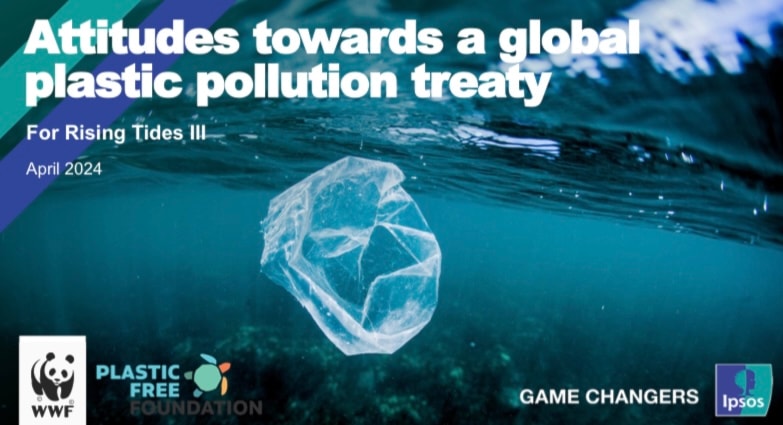A recent survey found almost nine in 10 people in 32 countries, including Canada, favour global rules banning hazardous plastics.
The survey conducted by Ipsos Global Advisor between Aug. 25 and Sept. 8 in 29 countries and Sept. 22 and Oct. 6 in three other countries in 2023 involved 24,727 adults aged 16 and 74 and found 88 per cent support a global treaty to combat plastic pollution.
It also found that 85 per cent agree manufacturers and retailers should be held responsible for reducing the use of plastic, 82 per cent reported agreeing to buy products with as little plastic packaging as possible and 75 per cent support banning single-use plastics.
The survey, sponsored by the Plastic Free Foundation and the World Wildlife Federation, also found 70 per cent of respondents support global rules for governments to end plastic pollution.
This may be a problem for Canada because of a recent federal court ruling. The court ruled on Nov. 16, 2023, that an order-in-council adding single-use plastics to the list of toxic materials to the Canadian Environmental Protection Act was unreasonable and unconstitutional.
The ruling found the designation too broad. The federal government is still considering whether to appeal the decision.
Among the about 1,000 Canadians surveyed, 36 per cent strongly agree, and another 30 per cent agree that plastic producers should be held accountable for reducing waste and plastic pollution for their products.
The survey reported that 38 per cent strongly agree, and another 26 per cent agree with reducing the amount of plastic produced globally.
And 32 per cent strongly agree, and another 26 per cent agree with banning single-use plastic products, such as shopping bags, cutlery, cups, and plates.
Banning chemicals in plastics that are hazardous to human health and the environment has 43 per cent of Canadians strongly agreeing and 26 per cent agreeing.
The data showed an overwhelming amount of people want to see a shift in plastic consumption and waste management across the globe.
The global consensus on plastic bans found that 90 percent of countries agree there needs to be action to curb plastic pollution. Across 32 countries, an average of 90 percent of respondents are advocating for global regulations to ban chemicals in plastics that are risks to people’s health and the environment.
In addition, 87 percent of the survey’s participants want to focus on reducing global plastic production. A similar amount of people support the ban on non-recyclable plastics and 85 percent agree on banning unnecessary single-use plastic products like shopping bags and cutlery.
The United Nations meanwhile is finalizing a global treaty to combat plastic pollution and is expected to be ratified by the end of 2024. This landmark agreement represents a collective commitment to help lower the amount of plastic waste.
Approximately 73 percent support clear consequences for violators and rules holding plastic producers accountable for waste reduction.
Fieldwork was conducted via the Ipsos Online Panel system for adults aged 18 to 74 in Canada, the Republic of Ireland, Israel, Malaysia, Morocco, Nigeria, South Africa, Turkey, Uganda, and the United States, aged 20 to 74 in Thailand, 21 to 74 in Indonesia and Singapore, and 16 to 74 all other countries.



